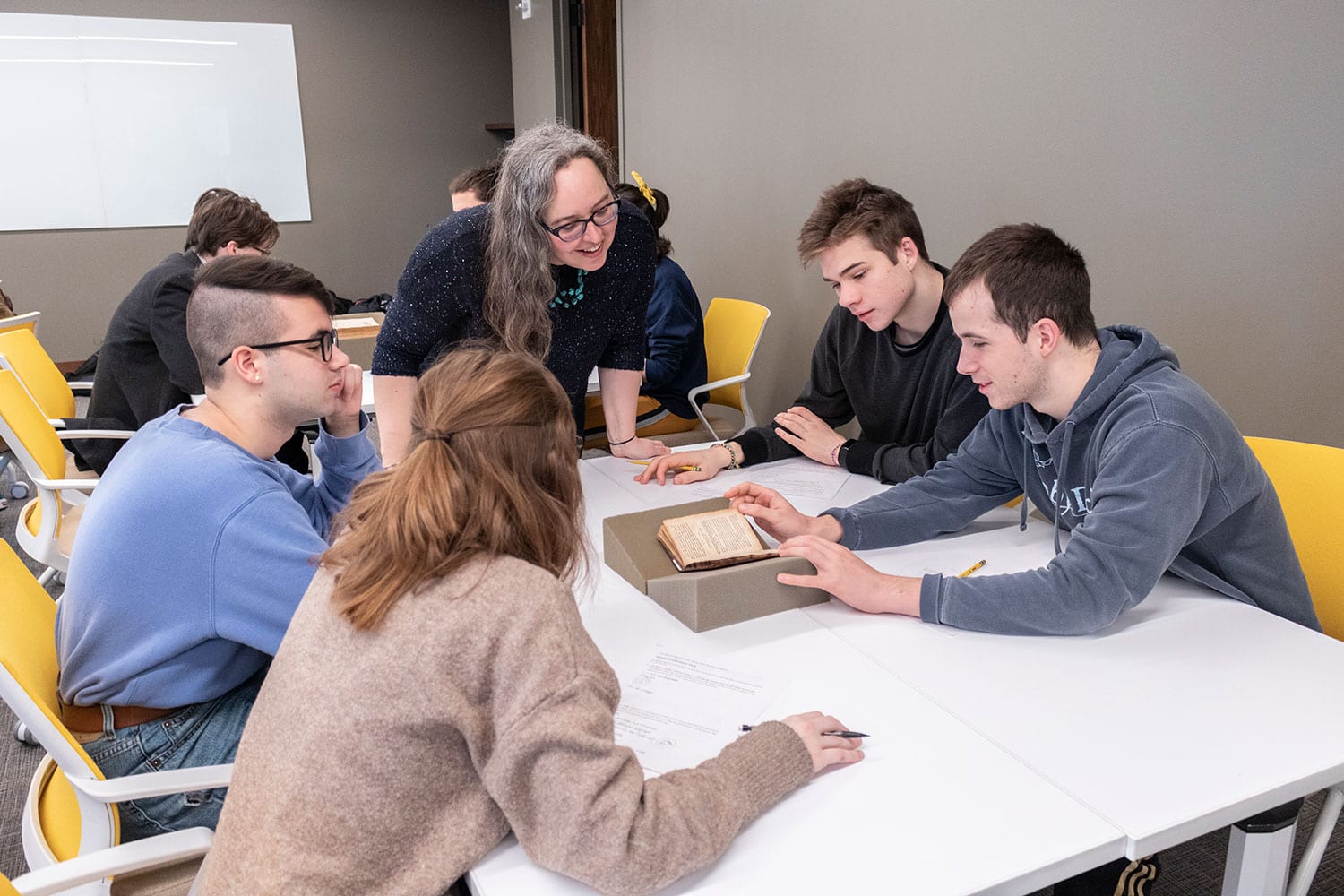Class name: “First Language Acquisition”
Taught by: Assistant Professor of Linguistics Jane Chandlee
Here’s what Chandlee has to say about her course:
In this class we look into the amazing and mysterious process of how humans acquire their native language(s). Babies and toddlers are doing a substantial amount of work trying to “decode” the language they’re hearing to figure out the patterns, structures, and principles of those languages. Figuring out how they’re doing all of that is difficult. In the class we’re working through the different components of language—phonology, morphology, syntax, etc.—and surveying what is currently known about acquisition in those areas. But we’re also looking closely at recent research papers by both established and up-and-coming scholars in the field, to get a sense of the carefully designed experimental methodologies used to uncover pieces of the much larger puzzle of first language acquisition as well as multilingual acquisition.
I hope the students come away from the class with a greater appreciation for how impressive the phenomenon of language acquisition is and how it is tied to what makes us human. I hope they also recognize that this is very much an active research area, as there are still so many questions we can’t answer.
I created this course because, within the linguistics department, we became aware of a significant amount of interest among our students in this subject. It was also a great opportunity to create a course that can be cross-listed with psychology, increasing the connections between the linguistics and psychology departments and students. I taught a similar course at another institution in the past, and I was excited for the chance to redesign it for the Bi-Co.
This course has a greater emphasis on research than many of our other courses. The linguistics curriculum includes a lot of 100-level introductory courses to train students in the necessary skills and concepts relevant to the different domains of language (sound systems, sentence structure, meaning, etc.). By design those courses focus on primary linguistic data from many languages, rather than existing analyses of that data, so that students learn how to identify patterns and construct analyses on their own. In this course, however, our focus is on reading and discussing established research findings by other scholars. We hope to offer more courses like this in the future, so that our majors are even more prepared to write a linguistics thesis in their senior year.
See what other courses the Tri-College Department in Linguistics is offering this semester.
Cool Classes is a recurring series on the Haverblog that highlights interesting, unusual, and unique courses that enrich the Haverford College experience.

